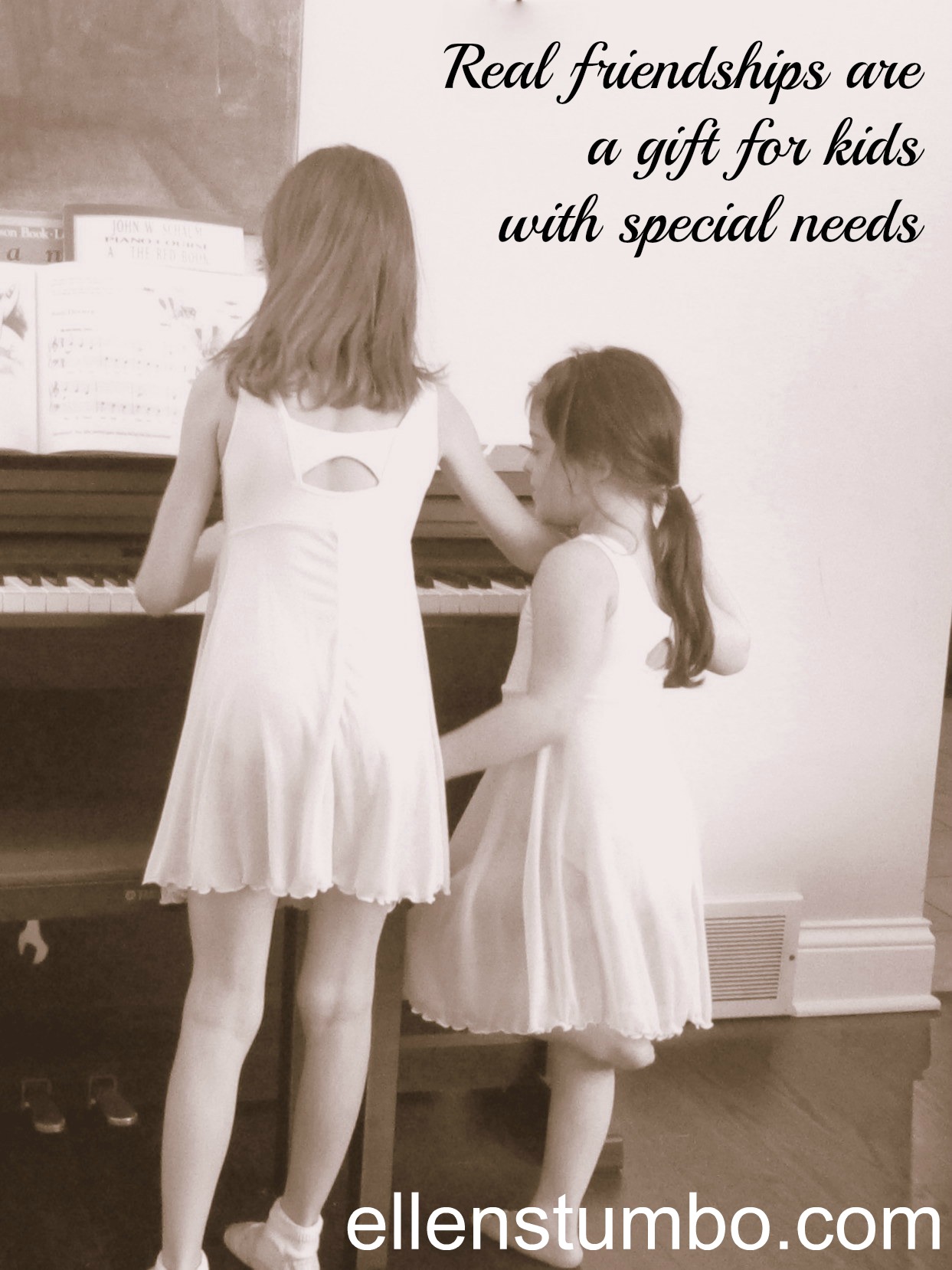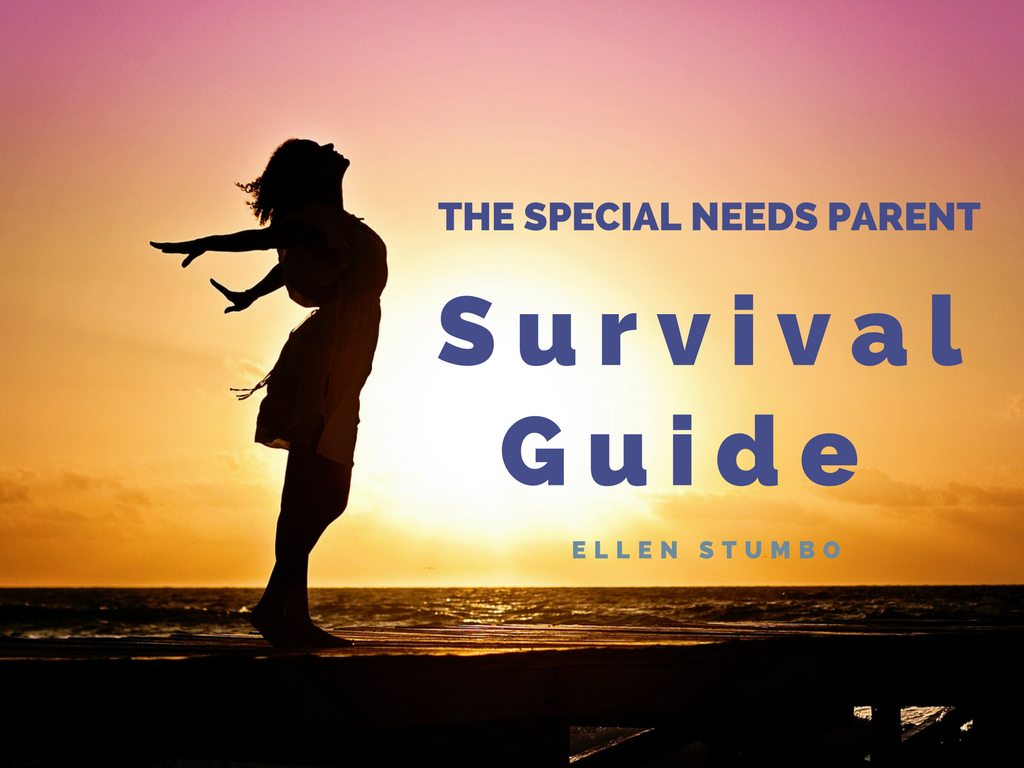Every time my cell rings and I notice the call comes from school, there is part of me that wants to jump into panic mode. Did my daughter with cerebral palsy get hurt? Did my daughter with Down syndrome- who is a runner – get lost? Should I be getting in the car and start driving while I answer the call?
 The reality is, most of the time our calls go like this: “Mrs. Stumbo, just calling to remind you the field trip money is due today,” “Just letting you know your daughter’s medication almost gone,” or, “A reminder you were signed up to bring snacks for your daughter’s class.” And when I forget the snacks, I should be getting in the car pronto.
The reality is, most of the time our calls go like this: “Mrs. Stumbo, just calling to remind you the field trip money is due today,” “Just letting you know your daughter’s medication almost gone,” or, “A reminder you were signed up to bring snacks for your daughter’s class.” And when I forget the snacks, I should be getting in the car pronto.
This year my baby – my daughter with Down syndrome, my child that struggles with speech, the one that I worry about bolting during recess, the one I wonder if she will ever have a best friend – started all-day Kindergarten. I depend on her teachers to tell me about her day.
When my cell rang and I heard her special ed teacher on the phone, my heart started to beat a little faster. But she was calling about getting my two girls with special needs to do swim therapy, something I had requested at the beginning of the school year. Once I had her teacher on the phone, I took that as a chance to ask her more questions.
“How is Nichole doing at recess? Has she tried to bolt yet?”
“No, she is doing really well. She has a little friend and they play together all the time, Nichole hasn’t even tried to run away.”
“Great to hear. And who is her little friend?”
“I am not sure, she is in a different Kindergarten class.”
“Let me guess, she has long hair.”
The teacher laughed, “Yep. She does.”
My daughter has a thing about long hair. Her hair is almost to her waist, but she is also drawn to other girls that have long hair. Last year in preschool, she especially liked a little girl with blond hair. She was constantly wanting to play with her fiend’s hair, running to sit by her during group time, grabbing their name-tags and putting them together at the table. Her little friend was overwhelmed by Nichole’s affection and attention. I understand, and I don’t blame her. But the truth is, as a mom, that experience made me wonder of Nichole would ever have a normal friendship, or a real friend, and I was sad for my daughter. Was this what we had to look forward to when it came to friends?
“Is Nichole bothering her?” I asked, “Because last year it was a problem with one of her classmates.”
“Oh no, not at all! This little girl waits for Nichole at recess, and when they see each other they run and hug, and they hold hands and play together.”
“Does she have special needs?
“No, I don’t think so.”
And this is when I thought, my little rascal has a friend, a little girl that doesn’t care that Nichole’s words are hard to understand, or that sometimes she plays different from other kids. And I could’ve cried right then.
“Do you know who this little girl is?” I asked.
“No, but I will try to find out for you.”
The next day, at the end of the school day. Nichole held her daddy’s hand. Having daddy come pick her up at school is exciting. Nichole was jumping, cheering, and her voice was high with excitement, calling her teachers and exclaiming, “Daddy!” And we all knew what she was saying, “Look who came to pick me up! My daddy! Isn’t this exciting!”
A little girl came out the Kindergarten doors. She stopped in front of Nichole.
“Hi!” Nichole squealed.”Daddy!”
Her little friend smiled, “See you Monday” She said. Then she hugged Nichole.
Nichole ran her hand down her friend’s long hair, “Bye!”
I smiled watching my daughter with her friend. It was evident they liked each other. You could see they were friends.
I worry that my girls will never have a true friend, someone that loves them regardless of their diagnosis. Someone -besides their sibling – that actually enjoys spending time with them.
Ask other parents of kids with special needs and they will tell you that friendships for kids with special needs are different, and often times it’s difficult for them to fit in with their peers. Sure, they might be accepted, included even. But acceptance and inclusion are not the same as a genuine friendship. Not even close.
So for now, I celebrate the fact that my daughter has a friend. I am thankful that there is a little girl with long hair that enjoys spending time with my daughter. A friend that waits by the door at school for Nichole to come out so they can hold hands and run together to the playground. That little girl might not yet understand, but she is a gift not only to my daughter, but to this mama’s heart as well.
Special Needs Parents, Are You Surviving?
I created a guide with 13 practical ways to help you find peace in the midst of chaos, opt in to make sure you get a copy of this freebie!




Young kids can have a purity that doesn’t let them see the things older kids and adults get hung up on. May we all see life as a young child does.
Thanks for sharing your story; it warms my heart.
Kids are always better able to embrace people, we could all learn so much from them!
I hope you don’t mind me reposting your picture on my Facebook page and thanking the parents of children who have befriended my darling DÁndra who is 11. I remember the heart wrenching years of no invitations to parties, wondering if she would ever have a friend. It’s turning around this year. You have to work at understanding her but DÁndra does speak up and loves being with her friends. She started attending a ministry for middle school kids and LOVES it. Whew *relieved* lol!
Not at all, share the link!
We have the same blessing of a friend who takes my daughters at face value, laughing at their silly jokes, remembering their birthdays, and making an effort to get together with them. Friends are a blessing from God, no doubt. Great post!
Thanks! I hope this is the case even as my daughters get older.
Fellow momma of a special needs boy, about the same age as Nichole. He has CP, MR and a seizure disorder. He’s also in a wheelchair and non-verbal. Totally get it on the friends front. So far, I have been lucky that my son is included and the children love to spend time with him. I don’t worry, per se, about how his interactions with peers will change in the future, but I’m certain not naive to believe that things won’t change as time goes on. There is definitely some apprehension. However, I think children now are more accepting of differences and want to know how to help their differently-abled peers – something that wasn’t so common when we were kids even 20 years ago.
Keep up the good work, Ellen.
Meg, yes, thankfully things have changed from the time we went to school! And thanks for the encouragement!